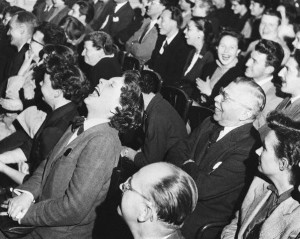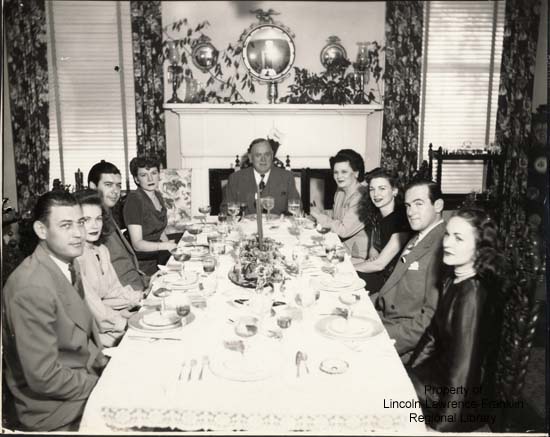Hearing Voices
Being an artist of any kind means hard work. It means pushing yourself to overcome your fears and doubts, and learning to trust your inner voice, the one that keeps telling you, “I have to write,” or, “I have to sing.” It means showing your work to others, submitting pieces for publication and knowing that there is a strong likelihood of rejection. It means getting feedback that doesn’t feel right. It means listening even though the words don’t seem to fit. My inner voice is loud and most of the time we work together. Sometimes though, the voice of doubt, always bubbling under the surface, creeps in and shakes things up.
I haven’t always found the right audience for my writing. Last year, before I started graduate school, I was in two performance-writing workshops. There was something about the chemistry of the classes that was highly unusual, only I didn’t know that until later. For almost a year, we had the pleasure of each other’s company every week while we read our new work out loud.
 We found each other hilarious. Our self-amusement was contagious, and for both of our shows, the audience laughed so hard it was practically in tears. Some friends of mine, who hadn’t been able to come to either of the shows but had heard about how funny they were from others, asked if I would read my most recent piece at their dinner party. I don’t know what possessed me to say yes. I wasn’t in a theater standing in front of a microphone not able to see the audience because of the lights, I was at a dining room table, looking at everyone eye-level while they scraped their plates for the last bit of chocolate cake and poured each other glasses of wine. I didn’t have my friend Meghan who set the tone for my piece in our shows, to follow. It was just me and a story about my bad behavior at a doctor’s office. What had seemed so hysterical in prior readings fell flat. Was it the wine? The location? My friends? Me? It didn’t matter. No one laughed. In fact, no one even got it. I was mortified.
We found each other hilarious. Our self-amusement was contagious, and for both of our shows, the audience laughed so hard it was practically in tears. Some friends of mine, who hadn’t been able to come to either of the shows but had heard about how funny they were from others, asked if I would read my most recent piece at their dinner party. I don’t know what possessed me to say yes. I wasn’t in a theater standing in front of a microphone not able to see the audience because of the lights, I was at a dining room table, looking at everyone eye-level while they scraped their plates for the last bit of chocolate cake and poured each other glasses of wine. I didn’t have my friend Meghan who set the tone for my piece in our shows, to follow. It was just me and a story about my bad behavior at a doctor’s office. What had seemed so hysterical in prior readings fell flat. Was it the wine? The location? My friends? Me? It didn’t matter. No one laughed. In fact, no one even got it. I was mortified.
I told the director of our performance-writing workshop what had happened a few weeks later. She had asked a few of her students from different classes to come together for a larger public show at an even bigger theater. I was still feeling the sting of my last read. She understood immediately, “it wasn’t the right place.” She warned us all more than once that we can’t predict how an audience is going to react. She told me her own story about performing a one-woman show and how the audience seemed to have taken sleeping pills. Halfway into it, she just wanted to run off the stage but she kept going. It turned out to be a turning point in her work, “I had to do it again right away, otherwise I would have quit from embarrassment.” She then had me read my piece in front of her to refresh it, so that my latest feeling about it was good. “Sometimes, you just don’t connect. There are so many factors when you share your work. People aren’t in the mood for it. They are hungry. They are tired. You are hungry. You are tired. Just keep at it. It’s never going to be heard the same way twice, ever.”
She is so right on.
It’s the same when you are getting even more direct critical feedback. At Antioch we have the incredible opportunity to work with some amazing teachers. These teachers present themselves at a “Meet the Mentors” panel where they explain how they work. We, the graduate students, then get to decide which person will help us get the most from our writing. Truthfully, I am a bit intimidated by the “Meet the Mentors” panel. These mentors are so talented and prolific; not only are they are published and respected for their own accomplishments, but their six degrees of separation connects us with some of the most renowned living writers in the world. The two I had the honor of working with were both straightforward and encouraging at the same time. But I won’t say it’s been easy. During my first semester, my mentor tried very hard to help ground my pieces.
“I never know where you are,” he said.
“What do you mean?” I said.
We went back and forth for six months. He tried very specific assignments, like “get on a bus and ride around your town and describe it to me.” He gave me suggestions on what books to read where the author’s presence was part of the story. At the end of our time together, I still hadn’t gotten it. We were both frustrated.
When the second semester started, I told my new mentor where I had had trouble. “I really want to get this,” I told her. And when I started my first piece for the new semester, there was a click. Suddenly, I had a location. Suddenly, I was physically in the story, not just this ethereal presence. The work felt different. It felt stronger. I trusted it. Somehow, my first mentor’s words worked their way into my essay. It finally made sense.
“Does this piece seem grounded?” I asked my new mentor.
“Oh yes,” she answered, “very.”
I wrote my former mentor right away, “I finally wrote a grounded piece!”
“Great.” he wrote back, “Stay grounded…man.” I heard that. And, I felt it.
It’s hard trying to find which voice to listen to. There are so many sounds in the world, and sometimes the ones you can’t hear, like the reception at the dinner party, are the loudest. We have to decide which words to take and which ones to leave, but mostly we just have to get back up and start over. Say something nice to yourself: you deserve it.






